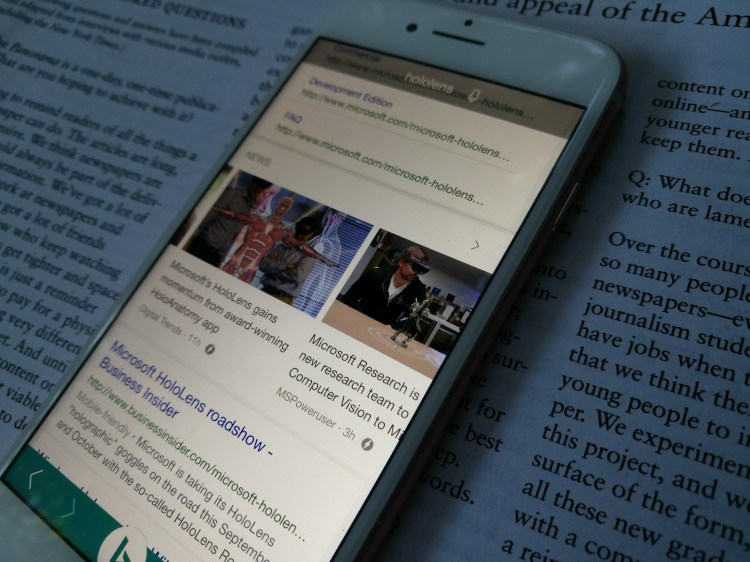testsetset
Microsoft today said that its Bing native app for Android and iOS is now including fast-loading Accelerated Mobile Pages (AMP) in search results. This marks the first time one of the world’s biggest search engines other than Google — which began the AMP initiative last year — is adopting the technology.
Microsoft began testing out showing AMP pages in May, and data shows that they load 80 percent faster than non-AMP pages, Marcelo De Barros, the group engineering manager in charge of Bing’s AMP integration, is quoted as saying in a blog post today from the Bing team.
Currently the Bing mobile app is displaying AMP pages only in the portion of search results that show news articles, including the News carousel — as indicated by the little gray and white lightning bolt icon. But there’s room for Bing to do more with the pages, which also take up less data than non-AMP pages. Earlier this week Google said that it has begun to show AMP pages across all search results when they’re available, not just for news.
Just like Google, Microsoft says that AMP pages are not a factor in Bing search ranking, even though it’s probably fair to say that they are mobile-friendly, and mobile-friendliness is indeed a ranking factor.
June 5th: The AI Audit in NYC
Join us next week in NYC to engage with top executive leaders, delving into strategies for auditing AI models to ensure fairness, optimal performance, and ethical compliance across diverse organizations. Secure your attendance for this exclusive invite-only event.
The core AMP technology is ultimately open source, unlike Facebook’s Instant Articles, which are similar to AMP pages in some ways but are different in other ways.
Other companies that have adopted AMP recently include Disqus and eBay.

